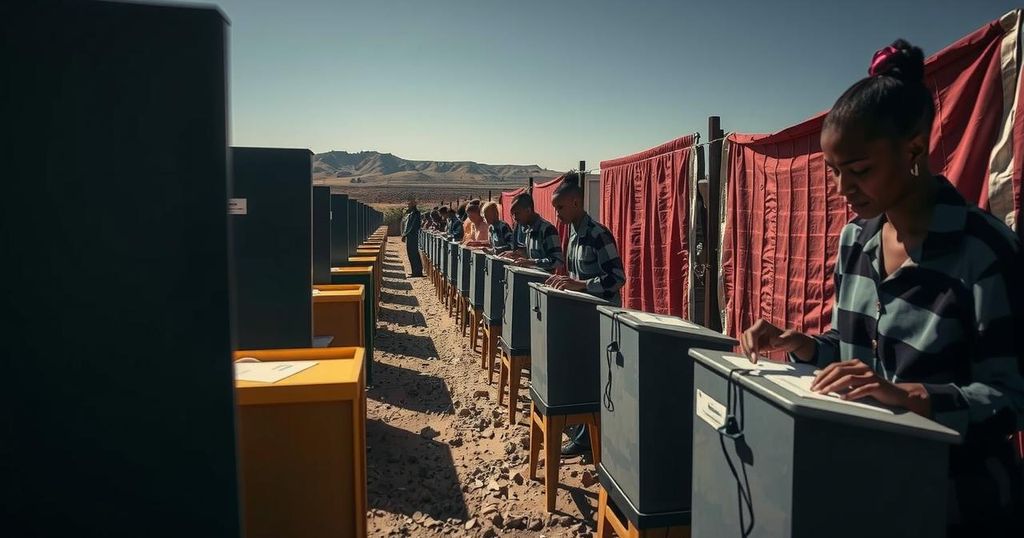Namibia has extended election voting until Saturday due to ballot shortages, prompting complaints from opposition parties alleging fraud. Voter dissatisfaction is growing, particularly among youth facing unemployment and economic hardships, as they demand change in governance. Vice President Netumbo Nandi-Ndaitwah is a key candidate in this tense electoral environment.
Namibia’s electoral agency has announced an extension of voting for the country’s presidential and parliamentary elections due to logistical issues, including a severe shortage of ballot papers. As a result, polling stations that were scheduled to close on Wednesday will now remain open until Saturday night. The main opposition party, the Independent Patriots for Change, has challenged this decision, claiming it constitutes an act of electoral fraud. The extension aims to accommodate voters, particularly in rural areas where ballots were not delivered in time, yet skepticism persists among the electorate regarding the electoral process.
Despite assurances from electoral officials about the arrival of ballot papers, numerous voters expressed frustration as many were still waiting to exercise their democratic right on Friday afternoon. Reports indicated extensive queues at polling stations, a reflection of the discontent surrounding this electoral cycle. Approximately 1.4 million Namibians are registered to vote for a new president and parliament, and widespread dissatisfaction with the current administration has emerged amidst economic hardship and high unemployment rates, particularly affecting young citizens.
Netumbo Nandi-Ndaitwah, the ruling SWAPO party’s candidate and the vice president of Namibia, stands at the forefront of these elections. Should she be successful, she would make history as Namibia’s first female president. Yet, the political landscape is increasingly influenced by youth-driven demands for change, echoing a broader trend across southern Africa as electorates seek to address pressing socio-economic issues.
The context of Namibia’s election extension is framed by challenges faced during the electoral process, including technical difficulties manifested in ballot paper shortages. These difficulties arise amidst a backdrop of increasing political tension and growing demands for governmental accountability, especially from the youth demographic dissatisfied with perceived ineffectiveness in addressing economic issues. Namibia has historically exhibited a stable democracy since its independence in 1990, primarily under the governance of the SWAPO party. However, the current electoral cycle reveals underlying issues that could challenge the party’s long-standing dominance.
In summary, Namibia’s decision to extend voting due to technical issues has sparked significant controversy, particularly from opposition factions who believe the measure undermines electoral integrity. The logistical challenges faced during this election cycle reflect a growing discontent among voters, particularly the youth, regarding economic hardships. With historical precedents indicating stability in Namibian elections, the current situation raises doubts about future governance and political climate in the nation.
Original Source: abcnews.go.com






